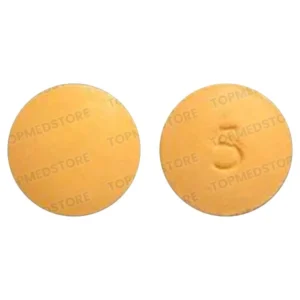Showing the single result
Prochlorperazine is a synthetic propylpiperazine derivative of phenothiazine with antiemetic, antipsychotic, antihistaminic, and anticholinergic activities. This drug antagonizes the dopamine D2-receptor in the chemoreceptor trigger zone of the brain and prevents chemotherapy-induced emesis. This medication is only found in individuals that have effective. It is a phenothiazine antipsychotic used in the treatment of nausea; vomiting; and vertigo. The mechanism of action of this drug has not been fully determined, but maybe primarily related to its antidopaminergic effects. The active component blocks the D2 somatodendritic autoreceptor, results in the blockade of postsynaptic dopamine receptors in the mesolimbic system and increased dopamine turnover.
Class of Drugs – Phenothiazines
Molecular Formula – C20H24ClN3S
Molecular Weight – 373.9 g/mol
Working: The exact mechanism of this antipsychotic medication is unknown; scientists believe that this drug may work by blocking the action of dopamine in the brain. Dopamine is a neurotransmitter that nerves use to communicate with one another. Prochlorperazine antipsychotics are used when people do not respond to other antipsychotics.
The antiemetic benefits of this drug are due to dopamine blockade in the chemoreceptor trigger zone of the brain. It has moderate effects on other neurotransmitters and receptors. A blockade of certain receptors called alpha-adrenergic receptors causes drowsiness, muscle relaxation, and adverse cardiovascular effects like low blood pressure, reflex tachycardia, and changes in heart rhythm.
Uses: This drug is approved for the treatment of severe nausea and vomiting from certain causes after surgery or cancer treatment. Prochlorperazine belongs to a group of drugs known as phenothiazines. It is not recommended for use in children younger than 2 years or in children going through surgery.
Popular Brands and Dosages: Given medication is used as the main active component in a popular brand medicine to treat severe nausea and vomiting:
- Compazine: 5 mg
This medication is not recommended in children below 2 years of age.

